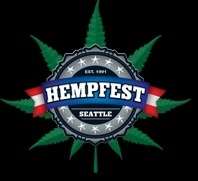 Budget Proviso Language: 3ESSB 5034 Sec. 141(2):
Budget Proviso Language: 3ESSB 5034 Sec. 141(2):
(a) The liquor control board must work with the department of health and the department of revenue to develop recommendations for the legislature regarding the interaction of medical marijuana regulations and the provisions of Initiative Measure No. 502. At a minimum, the recommendations must include provisions addressing the following:
(i) Age limits;
(ii) Authorizing requirements for medical marijuana;
(iii) Regulations regarding health care professionals;
(iv) Collective gardens;
(v) Possession amounts;
(vi) Location requirements;
(vii) Requirements for medical marijuana producing, processing and retail licensing; and
(viii) Taxation of medical marijuana in relation to recreational marijuana.
(b) The board must submit its recommendations to the appropriate committees of the legislature by
January 1, 2014.
1. Age limits
- Adults 18 to 20 years old should be allowed access to medical marijuana with proper authorization from a health care professional.
- Children 17 years old or younger should be allowed access to medical marijuana with parent or guardian consent to the authorization. The parent or guardian should participate in the child’s treatment.
- Authorizing health care professionals should be required to engage in frequent re-examination and follow-up with a child patient and communication with the parent or guardian. The authorizing health care professional should also be required to consult with other health care providers involved in the child’s treatment before authorization or re-authorization of medical marijuana.
- The child’s parent or guardian should be required to act as the child’s designated provider and be entered in the registry as such.
- The parent or guardian should have sole control over the child’s medical marijuana. The child should be allowed to possess no more medical marijuana than necessary for his or her next dose.
- Medical marijuana consumed in a school setting should be held and administered by school personnel in the same manner as any other medication. Consistent with current law, schools should not be compelled to accommodate on-site use of medical marijuana on school grounds or school buses.
- Medical marijuana products should be prohibited from being labeled in a manner that mimics candy, soda or other treats attractive to children.
Under I-502: A person must be 21 years old to legally possess marijuana, to hold a marijuana license or enter a licensed marijuana premise.
2. Authorizing requirements for medical marijuana
- A mandatory patient and designated provider registry should be established and maintained by the Department of Health.
- The registry should be mandatory for all patients as a condition of receiving an authorization.
- The registry should be used to determine eligibility for exemption from state and local retail sales and use taxes on marijuana purchases by qualified patients.
- Designated providers should be required to participate in the registry in conjunction with the patient.
- Patient and designated provider information should be entered into the registry by the authorizing health care professional. The information must contain sufficient unique identifiers (Washington driver’s license or identification card number or social security number) to ensure accurate identification of the patient or designated provider.
- Registration should expire annually and the patient or designated provider may be re-entered in the registry only after a new or follow-up examination.
- Cards should be issued from the registry to identify patients and designated providers.
- The registry should be available to law enforcement and to the Department of Revenue as necessary to verify tax-exempt purchases under Title 82 RCW.
- Disciplining authorities for the health care professions allowed to authorize medical marijuana should have access to the registry to monitor compliance by their licensees.
- Consistent and reliable funding must be provided to establish and maintain the registry.
- The registry should contain sufficient security features to protect patient privacy. Information in the registry that could identify patients should be excluded from public disclosure.
- All existing authorizations should expire on a date certain to coincide with full implementation of the registry and retail market. All patients with existing authorizations would need to be re-evaluated by a health care professional pursuant to the revised standards and placed in the registry within a designated time frame.
Under I-502:
N/A
3. Regulations regarding health care professionals
- Define “debilitating” and “intractable pain” to clearly indicate the condition must be severe enough to significantly interfere with the patient’s activities of daily living and ability to function, and can be objectively assessed and evaluated.
- Enact comprehensive requirements defining the standard of care for health care professionals who authorize medical marijuana similar to those required by ESHB 2876 (2010) regarding the use of opioids to manage chronic pain. The requirements should address topics such as adequacy of examination, follow-up care and recording keeping.
- Restrict a health care professional’s practice to ensure it does not consist primarily of authorizing medical marijuana.
- Require a permanent physical location for a health care professional’s place of practice.
- Require in person examinations for authorizations.
- Require an expiration of authorizations to ensure a regular cycle of re-examination and follow-up care.
- Eliminate the provision allowing for petitions to add qualifying conditions. Patients with conditions other than those already authorized can follow the legislative process to change the law and can avail themselves of the recreational marijuana market until such time as the law is changed. In the alternative, amend the petition provision to allow the Medical Quality Assurance Commission to make a preliminary finding of good cause prior to holding a hearing and expand the time frame for the hearing to be completed.
Under I-502:
N/A
4. Collective gardens
Eliminate Collective Gardens.
Under I-502:
N/A
5. Possession amounts
- Reduce the amount a qualified patient or designated provider can possess at any given time from twenty-four ounces of useable marijuana (a sixty day supply) to three ounces (a one week supply).
- Allow additional limits for marijuana infused products in solid or liquid form.
- Eliminate home grows and the ability for a qualified patient or designated provider to possess marijuana plants in any stage of growth. Define “plant” to avoid any misconstruction of this provision.
- Eliminate the ability for designated providers to also be qualified patients and thus possess double the legal limit of medical marijuana.
- Require labeling to include the levels of tetrahydrocannabinol (THC) and cannabinoids in medical marijuana products. Restrict labeling and marketing of medical marijuana products to ensure that they are not intentionally attractive to minors or recreational users.
- Eliminate the provision in RCW 69.51A.045 that grants qualified patients or designated providers an affirmative defense to criminal charges of possession above the legal amount if they can prove at trial the patient’s necessary medical use exceeds the amount determined in law.
Under I-502:
One ounce of useable marijuana; 16 ounces of marijuana infused product in solid form; or 72 ounces of
marijuana infused product in liquid form.
6. Location requirements
Not applicable because only current I-502 licensed retail stores may sell marijuana and accept medical marijuana authorization cards.
Under I-502: Medical marijuana licensed business cannot be within one thousand feet of the perimeter of the grounds of any of the following entities:
- Elementary or secondary school;
- Playground;
- Recreational center or facility;
- Child care center;
- Public park;
- Public transit center;
- Library; or
- Any game arcade where admission is not restricted to persons age twenty-one or older.
7. Requirements for medical marijuana producing, processing and retail licensing
A single system for medical and recreational producer and processor licenses. Only recreational marijuana stores with an endorsement may accept medical marijuana authorization cards. Make the new regulatory system for medical marijuana effective no sooner than January 1, 2015.
Under I-502:
1. Three separate license tiers: producer, processor and retailer;
2. A licensee may hold both a producer and processor license simultaneously, but not a retailer
license;
3. Open registration for all license types for a 30-day window;
4. Three month state residency requirement to qualify for a license;
5. Personal criminal history, fingerprint and background checks of applicants;
6. Point system for all arrests and/or convictions;
7. License limits;
8. Production limits; and
9. Maximum allowable amount of marijuana on licensed locations.
8. Taxation of medical marijuana in relation to recreational marijuana
Utilize the same tax structure as recreational marijuana, but provide an exemption from state and local retail sales and use taxes on purchases by medical marijuana patients registered with the Department of Health.
Under I-502:
1. Producers
a. Pay 25% excise tax on wholesale sales
b. Pay B&O tax as wholesaler
2. Processors
a. Pay 25% excise tax on wholesale sales
b. Pay B&O tax as manufacturer
3. Retailers
a. Pay 25% excise tax on retail sales
b. Pay B&O tax as retailer
c. Collect state/local retail sales & use tax
4. Retail Buyers
a. Pay state/local retail sales & use tax










Comments are closed.